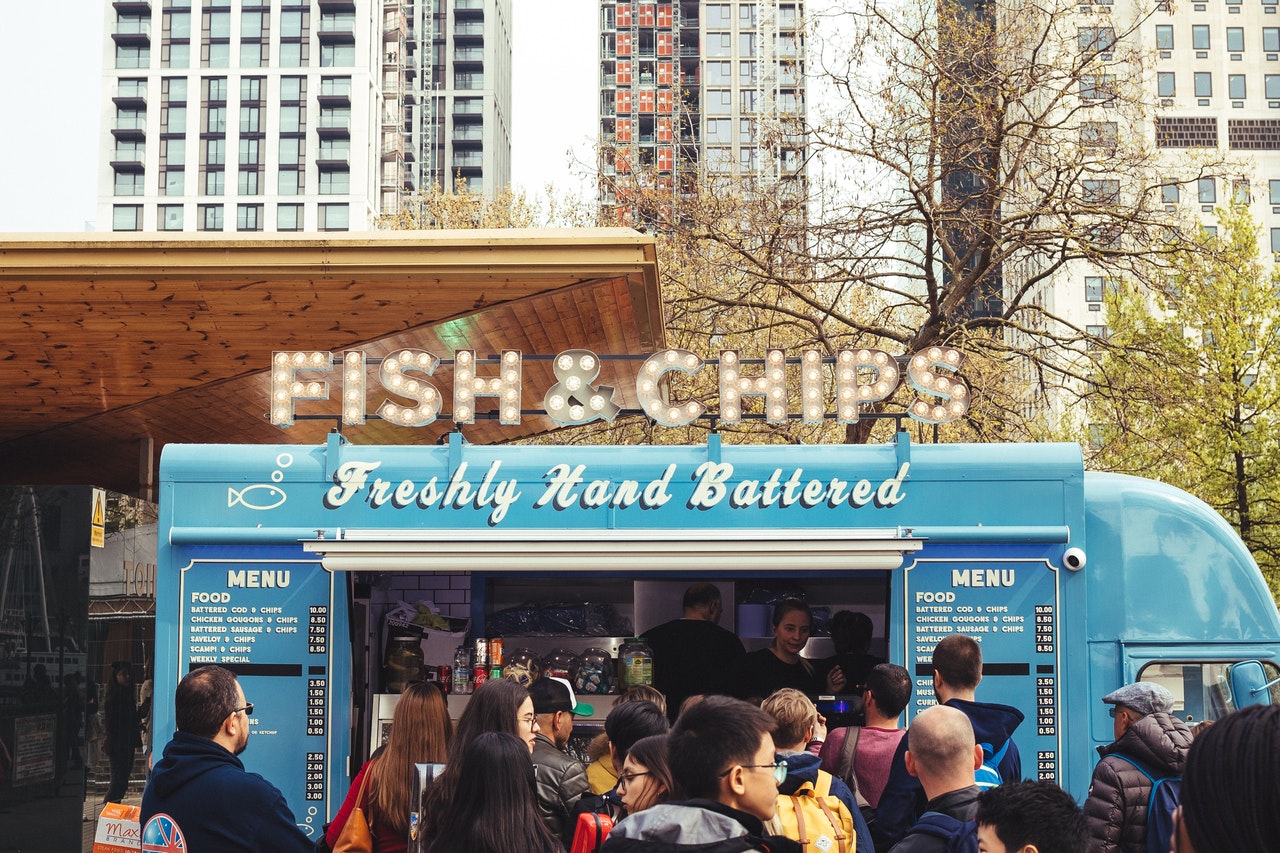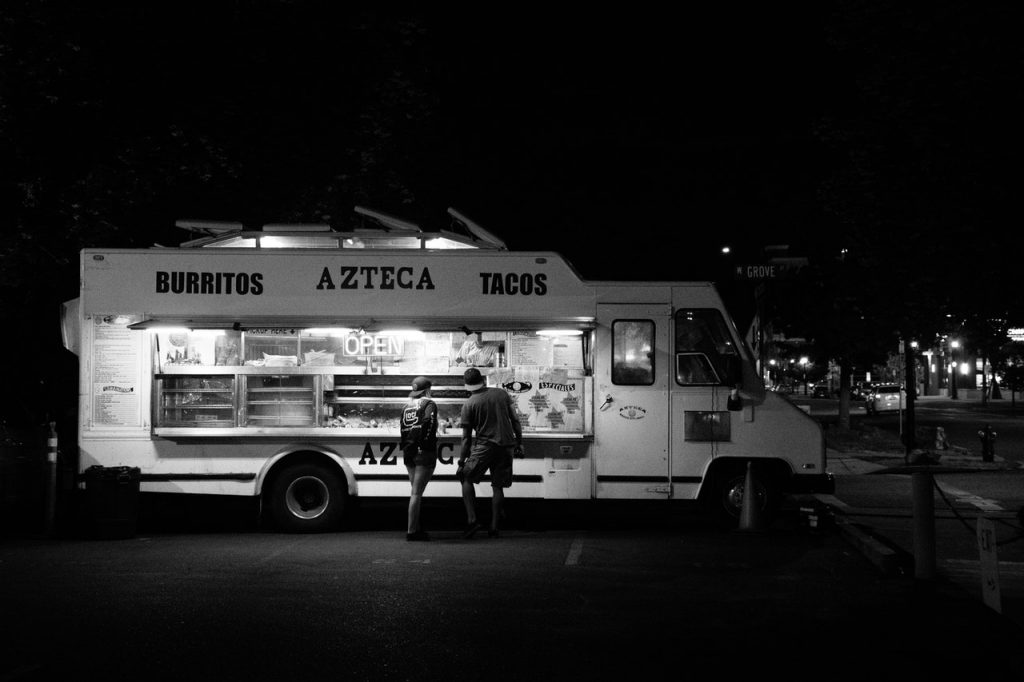Believe it or not, food trucks only began popping up around the early 2000s. Before that, it was all sit-down restaurants, ice cream trucks, and food carts or stands. Now you see food trucks almost anywhere. At major sporting events, concerts, or famous parks. Food trucks are basically the cooler older brother of food carts. They began to get popular around 2011. When TV shows such as The Great Food Truck Race and Eat Street started filming. Since then, the food truck business has been growing. And it’s here to stay, for a long time, too.
- The concept of the food truck was born out of passion.
- Food trucks aren’t fast food, nor are they traditional restaurants.
- The food truck business has become an industry of its own.
- Food trucks have been doing fairly well during the pandemic.
- Food trucks have been such an important part of the food industry.
The concept of the food truck was born out of passion.
Chefs wanted to cook good food. But putting up a traditional brick-and-mortar establishment was expensive. And many chefs had the passion but not enough money to build their own restaurant. Food trucks were the perfect way for chefs with little means to do what they love and earn without spending all their money trying to make it happen. They also let people eat good food without spending as much as you would at a sit-down restaurant.
Food trucks aren’t fast food, nor are they traditional restaurants.
They serve almost as quick as fast food, but they taste so much better. They have the same quality as food at a restaurant (or even better), but for a much lower price. They also let you eat on the go. But handling a food truck isn’t as easy as people might think. There are turf wars and struggles with the law (zoning requirements), and the weather is also an issue.
Some restaurants also argue with food trucks when they end up stealing their customers. But despite all that, food trucks are still here, and they’re determined to stay. Food truckers are like the mavericks of the food industry. They’re willing to go through all that trouble if it means getting good food to people. And that’s why so many people love food trucks and why they’ve survived for so long.
The food truck business has become an industry of its own.
Ever since its boom in 2011, there are now over 26,000 food trucks in the United States alone. It seems as if food truck businesses are growing more and more each year. Actually, if you take a look at the statistics. Between 2016-2021 the food truck industry has been growing 7.5% more on average each year.
Although businesses (in general) have faced tons of challenges due to the pandemic, food truck businesses have only become even more necessary nowadays. So, if you’re thinking about pursuing an opportunity in the food truck industry, now would be a great time to do it. And if you aren’t a chef. You could always go for automotive franchise opportunities and sell used food trucks to those who want to start a food truck business.

Although a lot of businesses, mainly brick-and-mortar establishments, have been severely affected by the COVID-19 pandemic. Food trucks have found a way to survive due to their mobility and capability of being driven from street to street. They’ve managed to survive the pandemic and provide people who can’t go out with good food. Food truck owner, Chris Ritter of Holy Toledough Handcrafted Donuts, said that the food truck has the perfect setup for the pandemic. The fact that you don’t have to sit down and you aren’t indoors. It’s the best way to still enjoy food out without breaking COVID-19 protocols.
Food trucks have been doing fairly well during the pandemic.
Plenty of food truck owners have struck deals with other businesses. They’ve also been allowed by the Federal Highway Administration to sell on highway rest areas. And some of them have also been providing food to essential workers in hospitals, police, and fire departments. Many food truckers have also been trying to raise money to fund meals for other essential workers. They even provided meals during the Black Lives Matter protests.
Food trucks have been such an important part of the food industry.
They have not only forever change the industry itself. But the culture of dining and street food. Food trucks are not only about the food. They are also about the passionate people behind the truck: those who were willing to give up everything if it meant serving their food to people and those that fought for their spots because it meant survival. Food truckers are survivors. But more importantly, they’ve been helping others survive, especially during the pandemic. Food to them isn’t only about profit; it’s life.

